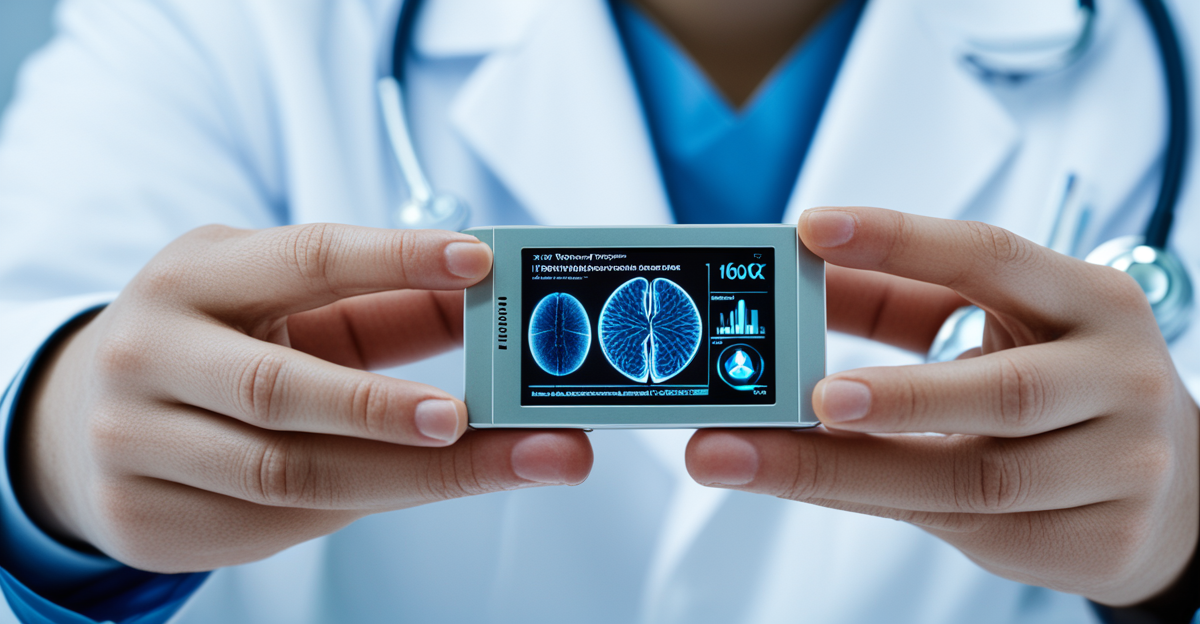Impact of UK Technology on Healthcare Delivery
UK healthcare innovation plays a pivotal role in transforming patient care models and addressing persistent challenges. Digital health technologies developed in the UK, such as advanced diagnostic tools and remote monitoring systems, are reshaping how healthcare is delivered across the country.
Major advancements include AI-powered systems that support early disease detection and data-driven decision-making, directly enhancing clinical outcomes. These innovations also tackle issues like hospital overcrowding and limited specialist availability by enabling remote consultations and continuous patient monitoring.
Have you seen this : What role does UK technology play in the evolution of AI ethics?
By integrating UK healthcare innovation into everyday practice, providers can offer more personalised and efficient care. For instance, digital platforms facilitate seamless communication between patients and clinicians, reducing delays and improving engagement.
Healthcare transformation powered by UK digital health technologies is evident in the evolving patient experience—shifting from reactive to proactive management. This transformation supports better resource allocation and broader accessibility, ensuring more equitable healthcare provision nationwide.
In parallel : How Will Emerging UK Technology Shape Future Trends?
Overall, leveraging these technologies is crucial for meeting current demands and future-proofing the healthcare system against emerging challenges, illustrating the profound impact of UK technology on healthcare delivery.
Impact of UK Technology on Healthcare Delivery
UK healthcare innovation continues to address pressing challenges through cutting-edge digital health technologies. For example, AI-enabled diagnostic tools enhance accuracy by analysing vast datasets swiftly, reducing human error and enabling earlier interventions. These advancements are instrumental in mitigating resource constraints such as hospital overcrowding and specialist shortages, by supporting clinicians with data-driven insights and automating routine tasks.
UK technology also facilitates new patient care models. Remote monitoring devices and telemedicine platforms, developed and refined within the UK, empower patients to manage their health actively from home. This shift promotes continuous care rather than episodic treatment, improving chronic disease outcomes and reducing emergency visits.
Moreover, healthcare transformation driven by UK digital innovations fosters better communication between providers and patients. It enables personalised treatment plans tailored by real-world data, ensuring care is responsive and effective. By integrating these solutions into clinical workflows, healthcare services become more efficient, accessible, and patient-centred, demonstrating the UK’s leadership in driving sustainable improvements across its healthcare system.
Impact of UK Technology on Modern Healthcare
The digital transformation NHS initiatives are central to driving rapid adoption of UK healthcare technology across both public and private sectors. Deliberate policy frameworks, funding, and NHS operational mandates act as key drivers accelerating integration of innovations in UK healthcare. These efforts aim to make healthcare systems more adaptive, efficient, and responsive.
Recent advancements include widespread deployment of interoperable digital platforms that streamline communication and data sharing among care teams. This integration enhances real-time decision-making and coordination, fundamentally altering healthcare delivery models. Additionally, patient-facing technologies such as mobile health apps improve engagement by enabling access to personalised health information and remote monitoring.
The impact on patient experience is significant. Digital tools contribute to more timely interventions, reduced wait times, and empowered self-management. NHS digital transformation projects prioritize inclusivity and accessibility, ensuring technology enhances equity in healthcare provision. Furthermore, advances in data analytics and automation reduce administrative burdens, allowing clinicians to focus more on direct patient care.
In summary, the strategic adoption of UK healthcare technology fosters a more connected, efficient healthcare ecosystem that improves outcomes while transforming how services are delivered and experienced.
Impact of UK Technology on Modern Healthcare
Recent innovations in UK healthcare focus on enhancing interoperability and data integration. The widespread adoption of UK healthcare technology within NHS and private settings is largely driven by strategic policies and increased funding. These key drivers accelerate seamless incorporation of advanced digital tools and platforms across clinical environments.
A central component of this shift is the digital transformation NHS initiatives, which prioritize real-time data sharing and collaboration among multidisciplinary teams. Such integration fosters more informed clinical decisions and streamlines patient management, reducing redundancies and administrative delays.
Patients benefit from easy access to personalised information, empowering them to participate actively in their care. Digital transformation NHS efforts also emphasize inclusivity, improving healthcare accessibility across diverse populations. This focus mitigates disparities by ensuring technology adoption is equitable.
Moreover, innovations in UK healthcare improve workflow efficiency, allowing practitioners to concentrate more on direct patient care. Automated processes and enhanced analytics support the clinical workforce by reducing manual tasks. Consequently, the healthcare system becomes more responsive, adaptive, and patient-centred, reflecting the profound impact of technology on modern healthcare delivery.
Impact of UK Technology on Modern Healthcare
Recent innovations in UK healthcare have been propelled by strong policy support and funding, accelerating the adoption of UK healthcare technology across NHS and private sectors. Central to this progress is the digital transformation NHS initiative, which prioritises interoperable systems enabling real-time data exchange. This promotes seamless collaboration among clinicians and supports enhanced, informed decision-making.
Key drivers include NHS mandates fostering integration of AI, remote monitoring, and data analytics tools. These tools automate administrative work and improve clinical workflows, freeing professionals to focus on patient care. Patients benefit significantly; digital platforms provide personalised insights and remote access to health data, encouraging engagement and self-management.
The digital transformation NHS efforts also address healthcare inequality by ensuring technologies accommodate diverse populations. Through greater accessibility and connectivity, healthcare becomes more inclusive and efficient. Ultimately, the integration of UK healthcare technology transforms care delivery—making it more proactive, coordinated, and patient-centred—addressing system pressures while enhancing outcomes for all.
Impact of UK Technology on Modern Healthcare
Recent innovations in UK healthcare are deeply transforming care delivery through strategic integration of UK healthcare technology within both NHS and private sectors. Central to this transformation are initiatives under the digital transformation NHS agenda that focus on enhanced interoperability, enabling real-time data sharing among healthcare professionals. This seamless integration fosters faster, more precise clinical decisions, reducing delays and duplications in patient management.
Key drivers accelerating technology adoption include targeted funding, regulatory support, and policy frameworks promoting collaborative innovation. These efforts ensure digital advancements reach frontline care efficiently, making systems adaptive and resilient.
The impact on patient experience is equally profound. Empowered with personalised health information and remote monitoring tools, patients actively participate in their care, leading to improved outcomes. Furthermore, digital transformation NHS projects emphasize equity, striving to eliminate disparities by enhancing accessibility through inclusive design.
In addition, automation and advanced analytics reduce administrative burdens, freeing clinicians to focus on direct care. This convergence of UK healthcare technology, policy, and patient-centred innovation forms a dynamic ecosystem that elevates healthcare delivery standards across the UK.
Impact of UK Technology on Modern Healthcare
Recent innovations in UK healthcare are rapidly reshaping care through the ongoing digital transformation NHS efforts, which emphasize interoperable systems and real-time data exchange. This transformation is primarily driven by strategic NHS policies paired with increased funding that accelerate the adoption of advanced digital tools. These include AI integration, remote patient monitoring, and sophisticated data analytics that automate administrative tasks and optimize clinical workflows.
The NHS’s push for unified platforms fosters seamless collaboration among multidisciplinary teams, enhancing decision-making efficiency and reducing redundant processes. Consequently, healthcare professionals can devote more time to direct patient care, improving service quality.
Patient experience has improved notably as these technologies provide personalised health insights and remote access, encouraging active engagement and self-management. Moreover, NHS initiatives focus heavily on equitable technology deployment, ensuring inclusivity across diverse communities, thus addressing healthcare disparities.
Overall, these coordinated efforts enhance the healthcare system’s responsiveness, making patient-centred care more proactive and connected. The comprehensive application of UK healthcare technology continues to advance service efficiency and clinical outcomes within both NHS and private healthcare sectors.








